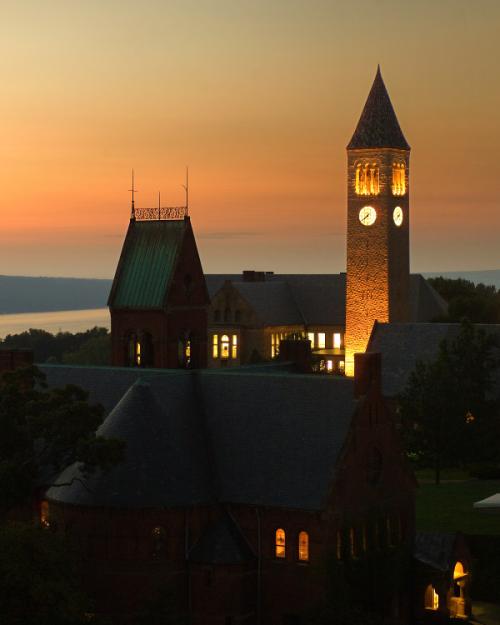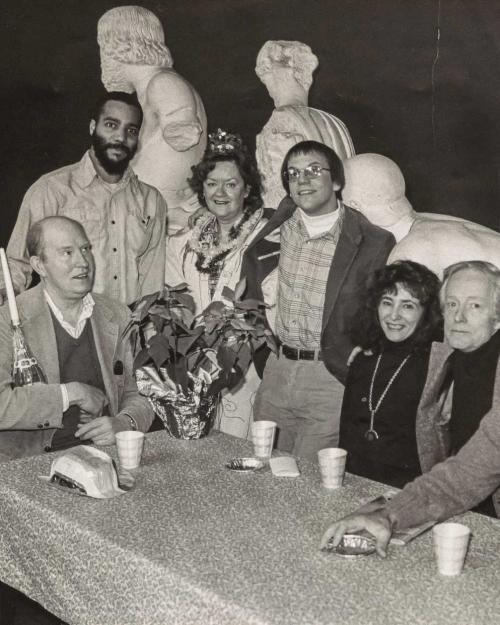Visit the Poetry Foundation website, type in “Cornell,” and you’ll find 405 results. Google “Cornell MFA” and you’ll find the university’s creative writing program listed among the top programs in the country for poets. Take a look at past bylines in Cornell’s EPOCH magazine and you’ll find early works by poets Charles Simic, Denis Johnson and Yusef Komunyakaa, winner of the 1994 Pulitzer Prize in poetry.
And trek to basement classrooms of Goldwin Smith Hall and you’ll find students who are in love with poetry, spending their evenings reading poems and stories aloud as they consider which ones to publish in their literary journals.
Though it’s not about Cornell’s Ithaca, many an undergrad has read the work "Ithaka” by Greek poet C. P. Cavafy and see some similarities to their own college journeys:
“Ithaka gave you the marvelous journey.
Without her you wouldn't have set out.
She has nothing left to give you now
“And if you find her poor, Ithaka won’t have fooled you.
Wise as you will have become, so full of experience,
you’ll have understood by then what these Ithakas mean.”
Cornell’s influence on the art and academic discipline of poetry has been deep throughout the university’s history and continues on campus today, where scholars and poets discuss and refine this art form in graduate seminars, gather for open mic nights and study the craft of creating beautiful and meaningful work in undergraduate classrooms.
Ammons and American poetry
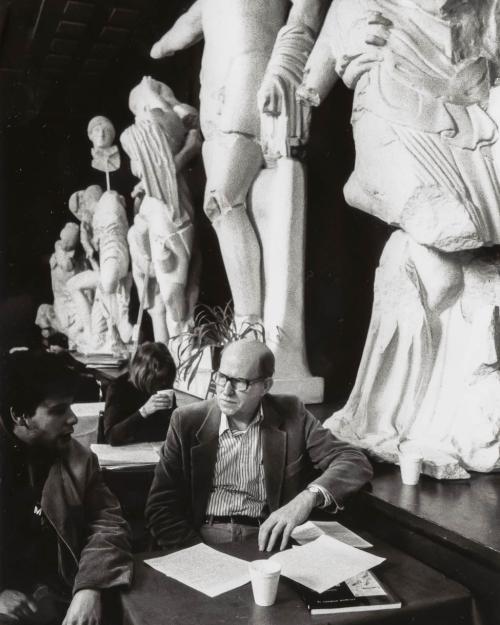
A.R. Ammons, who came to teach at Cornell in 1964, was a two-time National Book Award winner, whose poetry ranges in scale and language, said Roger Gilbert, professor of literatures in English in the College of Arts & Sciences (A&S), who is completing a biography of Ammons (1926-2001).
“Ammons received all the major honors and accolades one can get,” Gilbert said in a 2022 Cornell Chronicle story. “But beyond that, he is seen as a major figure in American poetry. He is to the second half of the 20th century what poets like Robert Frost and William Carlos Williams and Wallace Stevens and Marianne Moore were to the first half.”
Ammons was also one of the first American poets to incorporate science in his work, Gilbert said, and he was unafraid to experiment with form, punctuation and style, writing several poems on adding machine tape.
“Some of his poems are really challenging and almost don’t want to be liked,” Gilbert said. But other works are more accessible, focused on nature or animals. Ammons’ “Cascadilla Falls” is one of Gilbert’s favorites, and begins:
“I went down by Cascadilla
Falls this
evening, the
stream below the falls,
and picked up a
hand-sized stone
kidney shaped, testicular, and
thought all its motions into it,
the 800 mph earth spin,
the 190-million-mile yearly
displacement around the sun,
the overriding
grand
haul
of the galaxy with the 30,000
mph of where
the sun's going:
thought all the interweaving
motions
into myself …”

During his time as a faculty member, Ammons would hold court in the Temple of Zeus café, joined by students such as Alice Fulton MFA '82 (now Ann S. Bowers Professor of English Emerita) and faculty members including poet Phyllis Janowitz and chemist Roald Hoffmann, the Frank H.T. Rhodes Professor of Humane Letters Emeritus (A&S) and a prolific writer, whose sixth collection of poetry will be published in a few months.
“It was not until I found that group of professionals and amateurs in the Temple of Zeus, and met Archie in an art gallery that Archie would frequent, that I got some criticism of what I wrote,” Hoffmann said. “Archie knew a lot of science, so he was sympathetic to my knowledge. He could be brusque, but he could judge sensitively how much criticism a person could take. I miss him.”
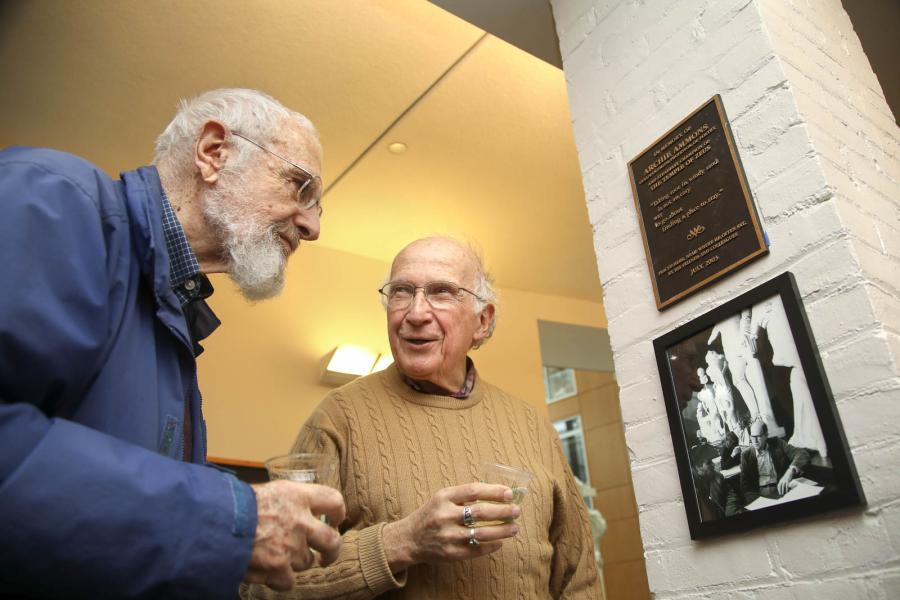
Hoffmann traces his fascination with poetry to an undergraduate class at Columbia University where he first read Wallace Stevens’ “Sunday Morning.” His own poems explore science, philosophy, nature and other topics.
“Everything in the world is connected to everything else,” Hoffmann said. “Poetry somehow helps me see all those threads of connection, and…not regretting that I cannot possibly explore them all, makes me happy about following one thread, on to another. All in words! That build worlds.”
Ammons continues to be celebrated on campus each semester at the Ammons Reading, which includes undergraduate poetry and fiction.
Today’s poetry faculty and grad students
Last fall, Gilbert taught a class on Cornell poets, and included work by Ammons, Fulton and Ishion Hutchinson, W.E.B. Du Bois Professor in the Humanities (A&S) and one of four poets on the faculty today in the Department of Literatures in English. Other faculty poets include Lyrae Van Clief-Stefanon and Valzhyna Mort. Poet Sandeep Parmar will join the faculty roster in fall 2025. Three other poets who were longtime members of the MFA faculty include Phyllis Janowitz, Robert Morgan and Kenneth McClane '76.
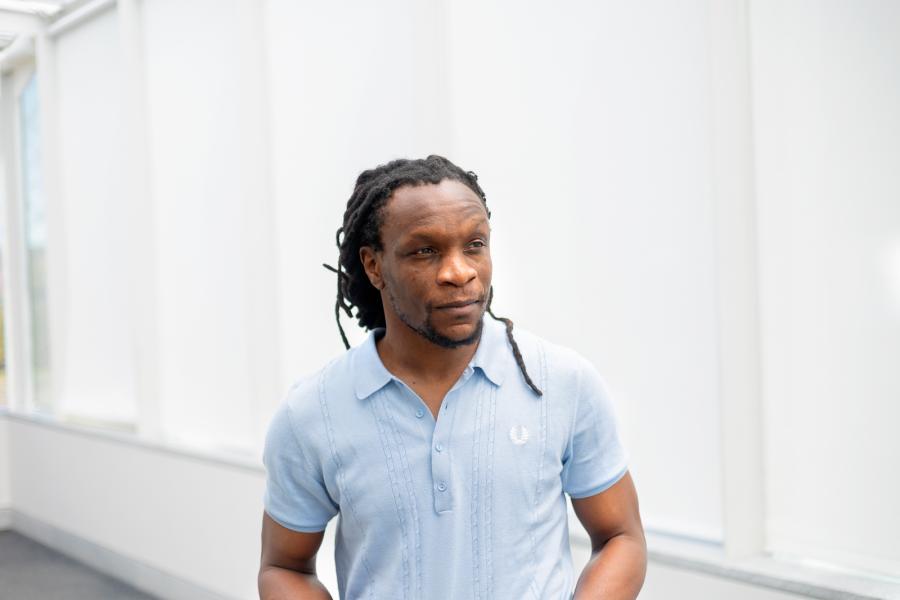
Hutchinson is the author of three poetry collections, “School of Instructions” (2023); “House of Lords and Commons” (2016), which received the National Book Critics Circle Award for Poetry; and “Far District: Poems” (2010, reissue 2024), which won the PEN/Joyce Osterweil Award. His first book of essays, “Fugitive Tilts,” was published in April by Farrar, Straus & Giroux. He is the recipient of a Guggenheim Fellowship, the Joseph Brodsky Rome Prize in Literature, the Whiting Award, and a Donald Windham-Sandy M. Campbell Literature Prize, among other honors.
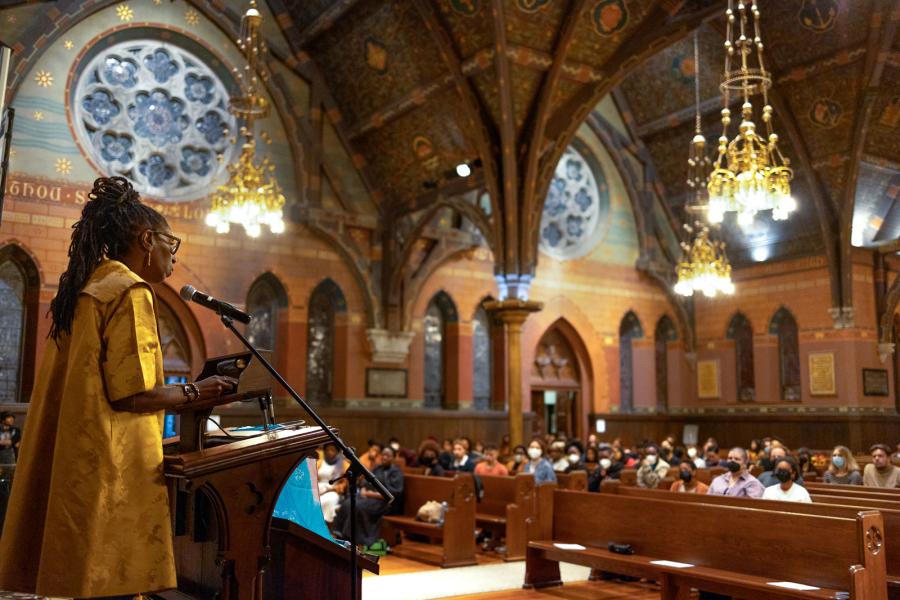
Van Clief-Stefanon is the author of “] Open Interval [,” a 2009 finalist for the National Book Award and the LA Times Book Prize; “Black Swan,” winner of the 2001 Cave Canem Poetry Prize; and “Purchase,” which was published in October 2024. She’s also published the chapbooks “Leading with a Naked Body” with Leela Chantrelle and “Poems in Conversation and a Conversation” with Elizabeth Alexander. She has won fellowships from Cave Canem, the Lannan Foundation and Civitella Ranieri.
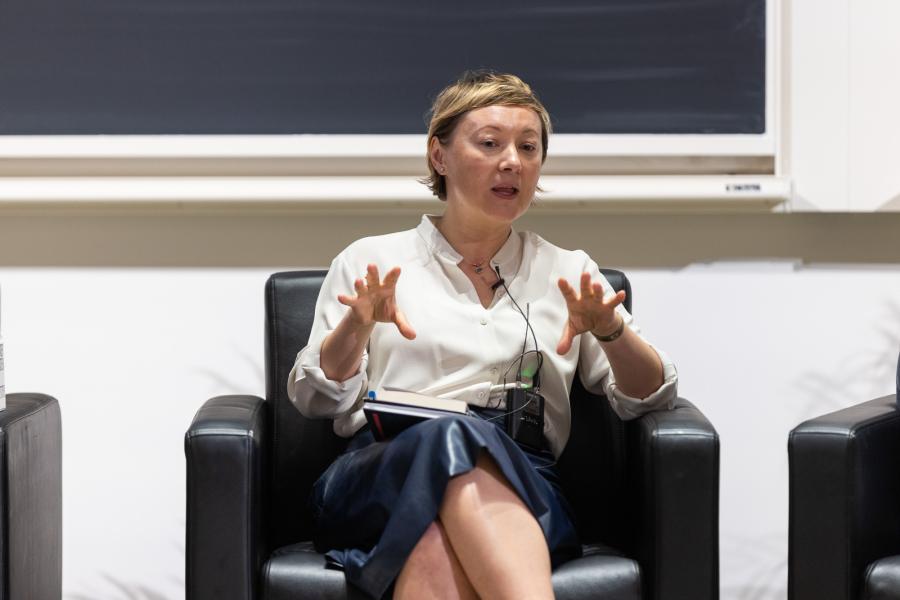
Mort is the author of three poetry collections, “Factory of Tears” (2008), “Collected Body” (2011) and “Music for the Dead and Resurrected” (2020), which was named one of the best poetry books of 2020 by The New York Times and NPR. She is the winner of the 2020 International Griffin Poetry Prize and the 2022 UNT Rilke Prize. Mort has received fellowships from the Guggenheim Foundation, the American Academy in Rome, the Lannan Foundation and the Amy Clampitt Foundation. Her work has also been honored with the Bess Hokin Prize from Poetry and has been shortlisted for the Forward Prize for the Best Single Poem.
These three are part of Cornell’s well-regarded Creative Writing Program and work with the four graduate students accepted each year into the poetry track of the program. Another four students are accepted each year into the fiction track.
“We are gifting two utopian years to young poets,” said Mort, an associate professor and director of the Creative Writing Program (A&S). The program receives nearly 300 applications each year for the four poetry slots. “Our philosophy is that we want to be as close as possible to the real-life mentorship they’ll receive outside of academia. We have a close relationship with our students.”
The Creative Writing Program also sponsors the Barbara & David Zalaznick Reading Series during the academic year, bringing to campus poets such as Nobel Laureate Seamus Heaney and U.S. Poet Laureate Ada Limon. Next fall’s series will include a visit from Kevin Young, poetry editor of The New Yorker.
Graduates of the poetry track include Fulton, who has written 10 books including “Felt,” which won the Bobbitt Prize for Poetry from the Library of Congress. Fulton also received The American Academy of Arts and Letters’ Literature Award and a MacArthur Fellowship. “She has created a language and a way of thinking that is so influential among young poets,” Mort said.
Other alumni poets include Jody Gladding MFA ‘81, Laura Riding ‘1922, Sally Wen Mao MFA '13, Diane Ackerman MFA ‘73, C. S. Giscombe MFA ’75, and McClane.
Many recent MFA alumni have published poetry collections, including Anne Rooney MFA ‘11, Benjamin Garcia MFA’12, Elizabeth Rogers MFA’12, Tacey Atsitty MFA’12, Emma Perry MFA ’14, Stevie Edwards MFA’14, Liza Flum MFA’16, Renia White MFA’16, Shane Kowalski MFA ’18, Lindsey Warren MFA ’19, Jasmine Reid MFA ’21, Mackenzie Berry MFA ’23, Mackenzie Donnelly MFA ’23, Esther Heller MFA ’24 and Derek Chan ’24, a current lecturer in the Department of Literatures in English who was shortlisted for the Forward Prize.
Bridget Huh is a current MFA student whose first book of poetry, “Fugue Body,” came out in March from Véhicule Press. She chose Cornell for the program’s size and for the chance to study with Mort.
“Her work was important for a lot of the work in this book,” Hu said. “The way she can take a theme and a motif and play with it and weave it with other things and transform it, it’s a magical effect when she does it.”
The MFA program, she said, is pushing her toward including more substantial language in her work.
“I worked in long poems that were a little more speech-like and not as lyrical and lush,” she said. “But because of the influence of the workshop, I’m condensing and pressuring the language more."
The program is also helping her to resume an intense writing schedule, which she had gotten away from as she finalized her book.
Undergrad poets come from all corners of Cornell
Saachi Subramaniam ’26 has a giant file on her Notes app of ideas or lines for poems.
“I get inspired by other students’ work or when I’m going about my day, I’ll jot down a line,” said the environment and sustainability major in the College of Agriculture and Life Sciences. “Then when I have a feeling or a moment I want to write about, that’s when I come back and puzzle piece the lines together.”
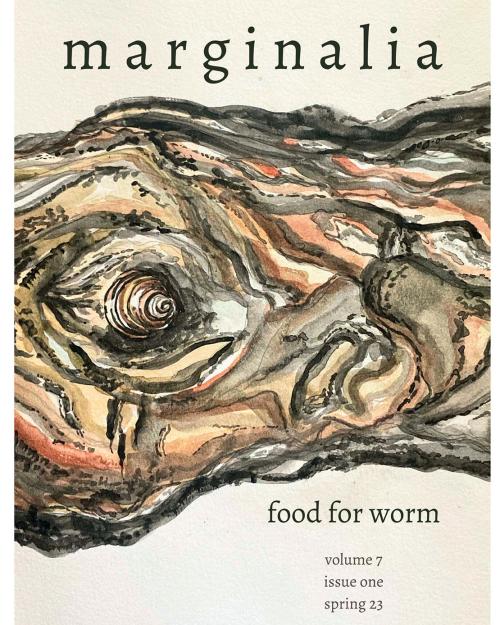
Subramaniam is one of the editors of Marginalia, a poetry journal on campus, which comes out each semester.
“I tend to keep my poetry to myself, but I do share my poetry with the people in the magazine,” she said. “It’s a space where you don’t have to be the best or the most technically incredible poet to get feedback.”
These days, Subramaniam finds herself writing poetry that skews political or environmental. “We’re in a climate right now where freedom of expression and talking openly about what you believe is very much under fire,” she said. “A poem I wrote recently captures this feeling I was having of being at a loss and asking the world to give me something nice.”
Lauren Maggiore ’28 said her favorite poems make her feel understood.
“I usually write about things in my own life that have bigger themes,” she said. “I feel like it’s important to share human experiences, so other people can relate to them and put them into the context of their own lives.”
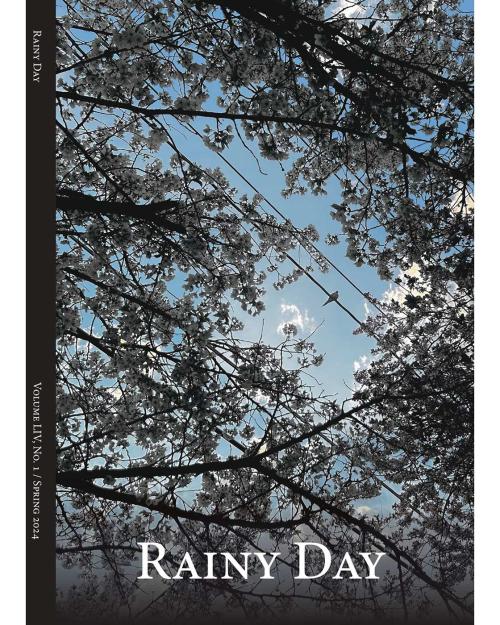
Maggiore, who’s in the School of Industrial and Labor Relations, comes every Monday to the meetings of the Rainy Day Literary Magazine. The magazine’s co-editors are Leah Badawi ’27 and Caidan Pilarski ’25, both students in A&S.
Pilarski, who has a book of poetry already published and another on the way, said Cornell’s writing community offers lots of opportunities for students, from literary and philosophy journals such as Logos, Thread and Kitsch, the Cornell Review, the Cornell Daily Sun and a vast array of classes. He’s taken classes with Hutchinson and writes poetry every day.
“I think Cornell is a very rich and creative university in the artistic sense when you give yourself the time to delve into it,” he said. “Even Dragon Day is inherently creative.”
Cornellians in poetry’s future
Along with publishing and teaching poetry at universities around the world, Cornell alumni also support other poets through mentorship and work at literary journals and publishing houses.
Michael Prior MFA ’17, associate professor of English at Macalester College, said his years at Cornell “were some of the most impactful and inspiring years of my writing life.”
“The program asked me to engage with the writing of poems as an act of discovery, and it pushed me to be a more lucid thinker and more capacious risk taker — intellectually and emotionally— as a writer,” Prior said. “I emerged from my time at Cornell recognizing that poetry was the most significant and authentic education I could ever ask for.”
Prior is also the poetry editor at Véhicule Press in Montreal, where he curates and edits the titles published under Véhicule's poetry imprint, Signal Editions.
“I love having the opportunity to immerse myself in another writer's obsessions and language — a well-made poem changes the way one sees the world for a while, and I, luckily, get to have my view of the world changed on a regular basis through this work,” he said. “Presses like Véhicule — which often operate at close to a loss, and whose editors and staff are often volunteering their labor or working for token honorariums — are performing vital cultural work: they play a large role in keeping the artform alive and helping contemporary poetry reach readers.”
Cornell’s undergraduate poets may not ever have their poetry published with a press, but their experiences with poetry on campus have created strong feelings about the importance of the art being accessible to all.
“There’s a danger in telling people that their poetry isn’t deep enough or complex enough,” Subramaniam said. “I think that it’s important to encourage people to test the boundaries of what they can write. I don’t always have to write about being really sad and just breaking up with someone. Joy is complex. Frustration is complex. Poetry, like any writing, is a way to use your voice.”
And Cornell’s poets know how to use their voice, to tell a story about love, of the land we live on, of nature and of loss.
“Currents”
By Lyrae Van Clief-Stefanon
“Think of the way blood is.
A host, listening. Roiled under the tide—.
A windowsill cat’s making a new language
For birds, cracks his whisper into chittering. Day breaks like silver levered
Trays once cracked opaque cubes to scattered white sheering, skittered. The secret to beats
A shattering—the world is cold. I could have been a better host to love.
But look there. Under the creek bank’s tangled branches
A delicate line of ice blossoms—made, swayed by the freezing brook bump . . .”



